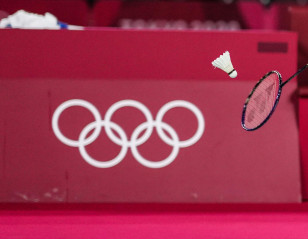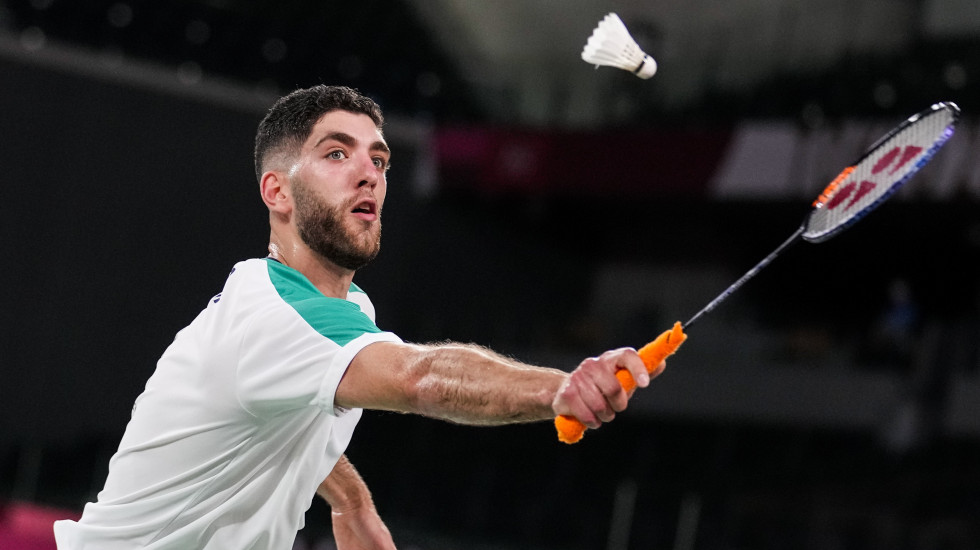
World Refugee Day: Olympic Flame Continues to Inspire Mahmoud
Aram Mahmoud, who made history at the Tokyo 2020 Olympic Games as the first badminton player in the IOC Refugee Olympic Team, sounds content. Based in Almere in the Netherlands, he is particularly happy that his parents and siblings are with him, away from the troubled situation in their home country Syria. He is close to completing his second year of his sports marketing course, and he has renewed his goals in badminton. He enjoys coaching junior players. He has much to look forward to – indeed, he hasn’t ruled out competing in another Olympics.
Perhaps more importantly, he constantly talks of becoming a better version of himself.
After playing a few tournaments for his home country Syria, Mahmoud relocated to the Netherlands in 2015, eventually resuming his badminton career three years later. Following his history-making debut at the Olympics, Mahmoud pursued his education, while continuing to play badminton, including league matches in Netherlands, Spain and Germany. In recent months badminton did take a backseat to studies – he played only two international tournaments this season — but after his second-year exams, he wants to get back to life as a professional badminton player from September.
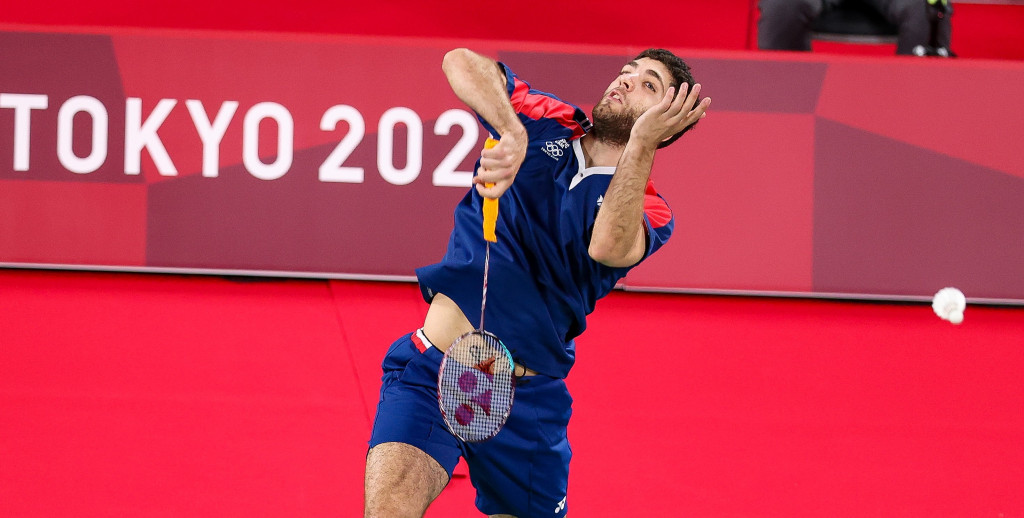
“I was thinking of having a break (from studies), so I can fully focus on badminton and practice in a good way and live like a professional athlete,” the 26-year-old says.
“I’m motivated by myself, to try to be the best version I can be. I want to see how much I can improve. It’s challenging because I need to do it by my own. It will be nice for me for later, when I stop playing, I can tell myself I did everything I could.
“The goal is to reach the top 100. I know I can do it.”
Having trained and played in various centres in Europe and Asia alongside elite players, Mahmoud believes he has evolved into a better player since his appearance at Tokyo 2020.
“I’ve become wiser, I understand the game a bit better with the experience I’ve had. I can also think differently during a game. I haven’t been practising as much as before, so I feel my endurance and stamina have gone down. It’s a good goal for me to build up my stamina, to be a more complete player.”
And while the Olympics was a once-in-a-lifetime experience, it continues to whet his appetite for more.
“Playing at Tokyo 2020 motivated me,” recalls Mahmoud. “It helped me understand that I still have a lot to work on. Playing top players like Jonatan Christie and Loh Kean Yew made me think that I’m not there yet. And if I want to be there, I need to work 200 per cent. It’s not easy to be there. I have to be at a higher level to challenge them. We saw it with Kevin Cordon (at Tokyo 2020) for example. If he can reach a semifinal, we all can. This made me feel like I need to do a lot of work.
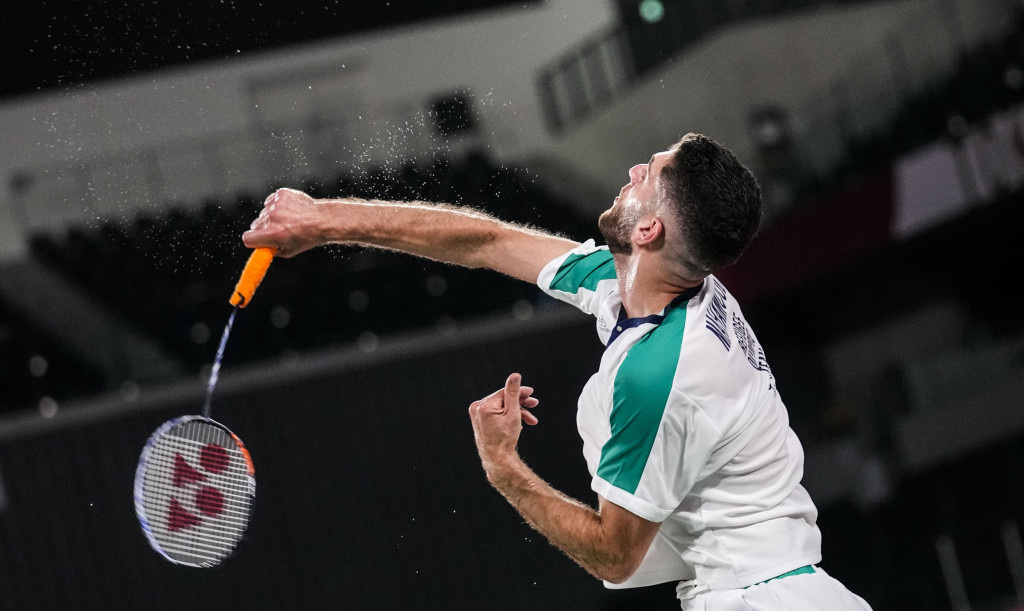
“Los Angeles 2028 is a goal. I want to give myself a chance again. It’s not easy to cover the expenses. If I have the possibility and the environment to continue, I’d love to participate in 2028, but also as a better version of myself. To do everything I can, not try 50-50, but to be there 100 per cent.”
Down the road, he’d like to help others like himself. He knows the value of sport in helping refugees get back on their feet. From first-hand experience he knows sport can be an important tool in this process.
“I would love to help out refugees,” says Mahmoud. “So far I haven’t had a chance as I’ve been busy with my studies and coaching. Especially with people coming for a new life and career in Europe, I know the difficulties they face and the care they need, to show what they can do. I received that from a couple of people in the Netherlands, and also from the IOC and the refugee team.
“Sport can have a huge impact on people. They want to forget what they’ve been through, and develop that into achievement and sport is an important thing to have if you want to reach a goal.”
Tomorrow: Dorsa Yavarivafa, IOC Refugee Team player at Paris 2024, talks to Aram Mahmoud
Olympic and Paralympic News
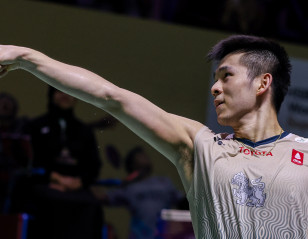
Olympic Day: Excitement Builds for Paris 23 June 2024
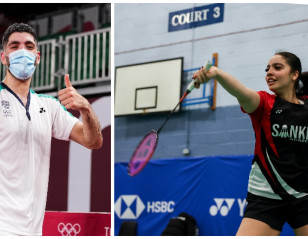
World Refugee Day: Fight for Every Point, Aram Tells Dorsa 21 June 2024
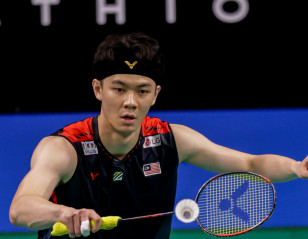
Australian Open: Lee Rediscovers Mojo 17 June 2024
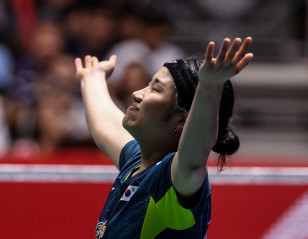
Singapore Open: Buoyancy Restored 3 June 2024
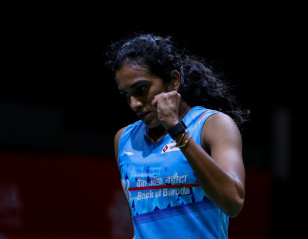
Malaysia Masters: Step in Right Direction 24 May 2024
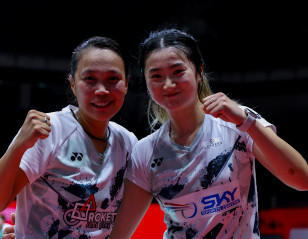
Malaysia Masters: Paris Spur for Mapasa/Yu 23 May 2024
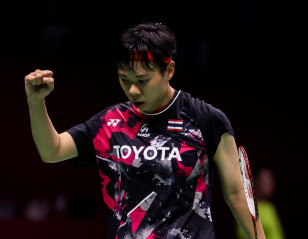
Thailand Open: Katethong Proves She Belongs 17 May 2024
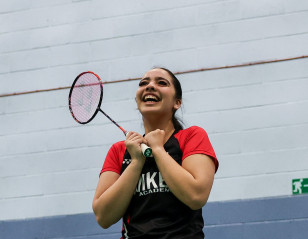
Yavarivafa Vows to ‘Make Everyone Proud’ 11 May 2024
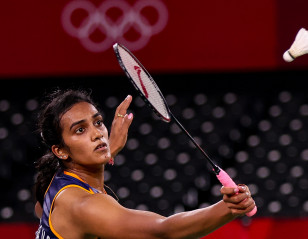
Paris 2024 Olympic Games Qualifiers Finalised 10 May 2024
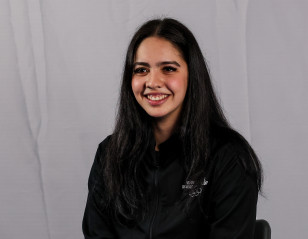
Dorsa Yavarivafa in IOC Refugee Team for Paris 2024 2 May 2024
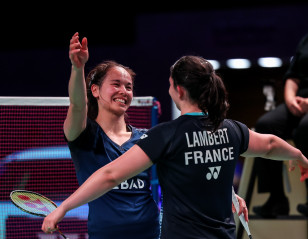
European Championships: France Finish on a High 15 April 2024
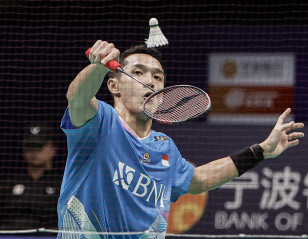
Asia Championships: Christie, Wang Zhi Yi Excel 14 April 2024
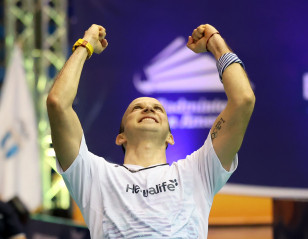
Pan Am Championships: Ageless Cordon Wins, USA Dominate 14 April 2024
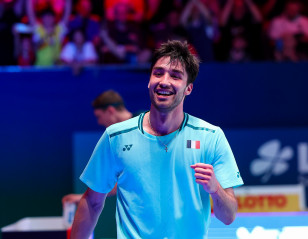
European Championships: Toma Junior Stuns Axelsen 14 April 2024
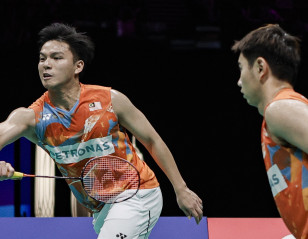
Asia Championships: Goh/Izzuddin’s Great Run Continues 13 April 2024
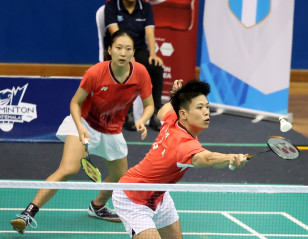
Pan Am Championships: Big Wins for USA 13 April 2024
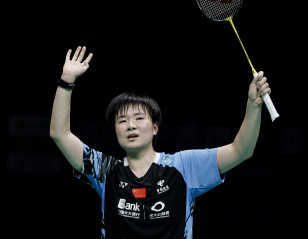
Asia Championships: Dream Day for China 12 April 2024
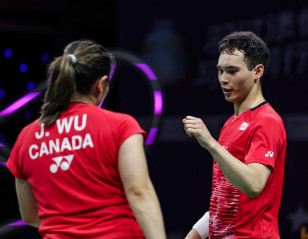
Pam Am Championships: Olympic Race Heats Up 12 April 2024
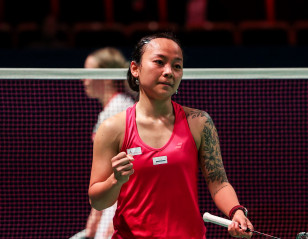
European Championships: Shock Loss for Blichfeldt 12 April 2024
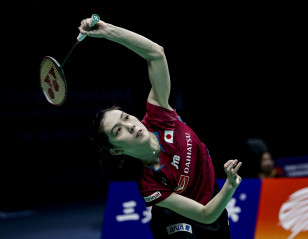
Asia Championships: Ohori Trips Tai 11 April 2024
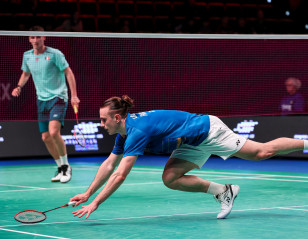
European Championships: Christo Popov Falls to Lanier 11 April 2024
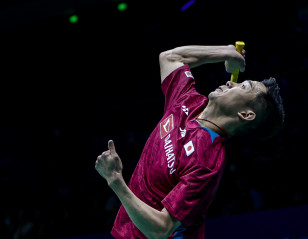
Asia Championships: Nishimoto Outplays Loh 10 April 2024
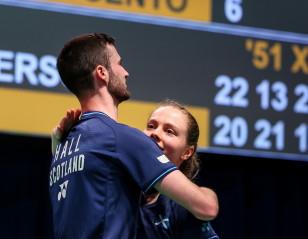
European Championships: Fruitful Day for Hall, MacPherson 10 April 2024
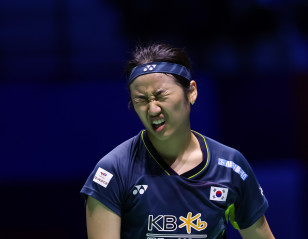
Pushing Through the Pain Barrier 9 April 2024
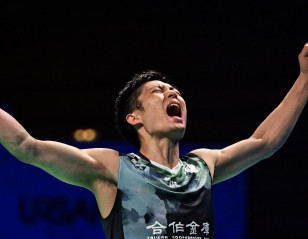
Having Overcome Cancer, Chou Wants to Spread Positivity 5 April 2024
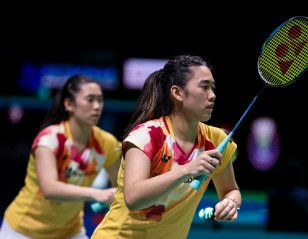
Twins Narrowly Ahead as Race Heads for Photo Finish 4 April 2024
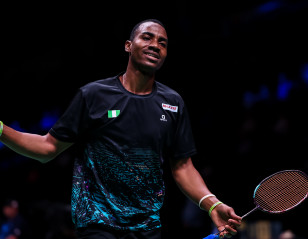
No Relaxing for History-Nearing Opeyori 23 March 2024
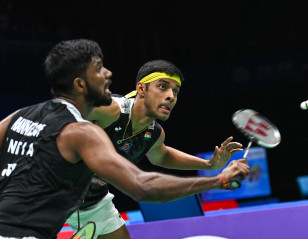
‘There’s Much More in Our Tank’ 1 March 2024
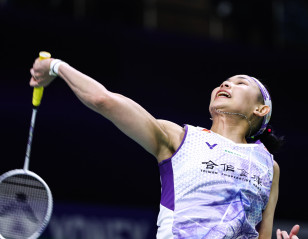
Tai Tzu Ying, The Second Coming 29 February 2024
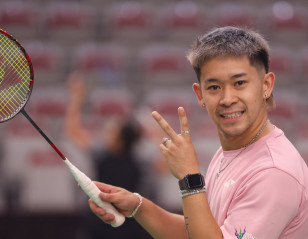
Take Two, with New Mates 15 February 2024

Badminton Venue for Olympics and Paralympics Inaugurated 13 February 2024
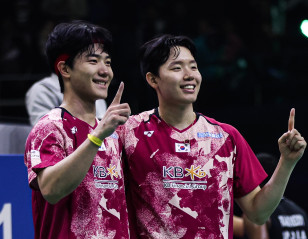
Kang & Seo: Showcasing Winning Ability 12 February 2024
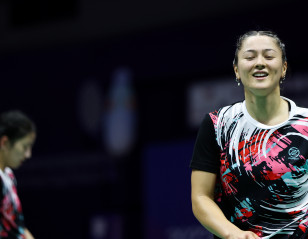
Paris Dreaming 8 February 2024
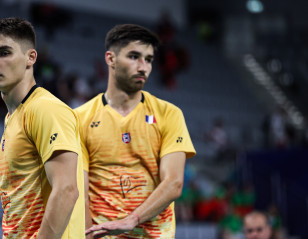
Sprint Begins 7 February 2024
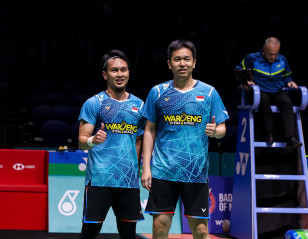
Malaysia Open: ‘Anything is Possible’ 10 January 2024
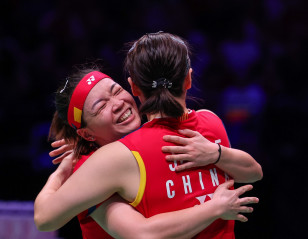
In the League of Greats 7 January 2024
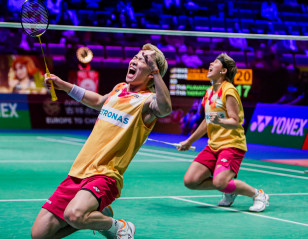
Malaysian Duo Look to Build on Gains from Last Season 6 January 2024
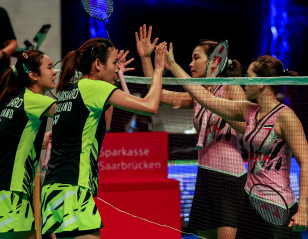
Game for Friendly Fight 5 January 2024
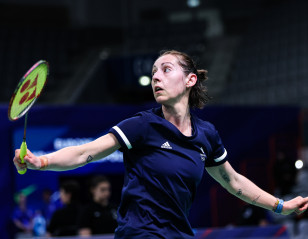
Gilmour: Grit and Grace on the Road to Paris 2024 4 January 2024
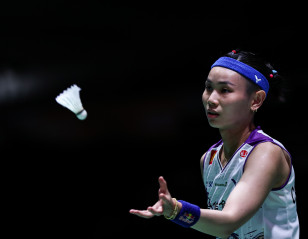
Season Preview: Towards Paris 2024 2 January 2024
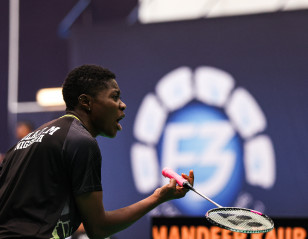
Dubai Para: ‘My Shots Were Perfect’ 13 December 2023
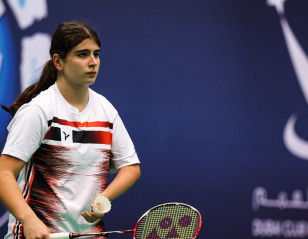
Dubai Para: Monteiro Focused on Meticulous Planning 12 December 2023
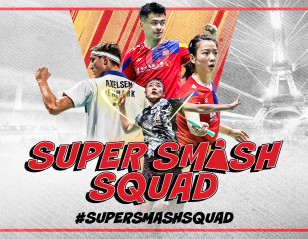
BWF Presents Super Smash Squad: Unleashing Badminton Heroes 25 October 2023
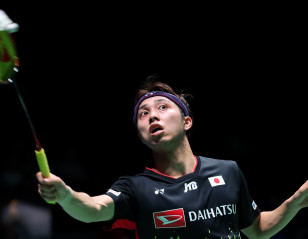
Naraoka, An Se Young Lead Race to Paris 4 August 2023
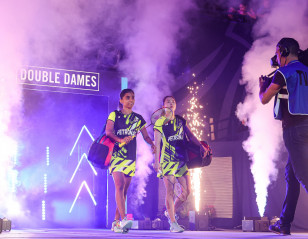
Paris 2024: With a Year to Go, Festive Spirit Pervades 26 July 2023
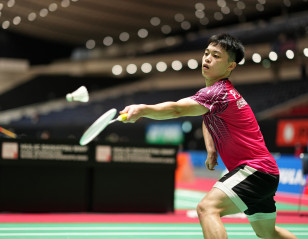
Badminton Lets Pu Gui Yu Enjoy the World 20 July 2023
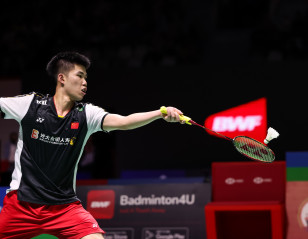
Two Olympic Champs Aiding Weng’s Growth 28 June 2023
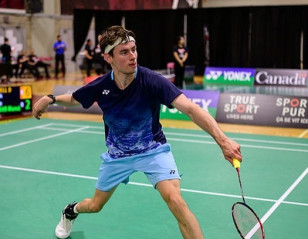
Canada Para: Bethell Extends Dominance Over Bhagat 19 June 2023
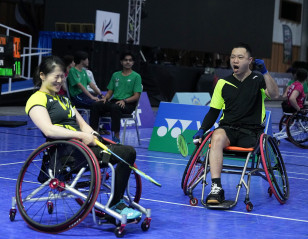
Thai Para: Daily Discussions Lead to Gold 15 May 2023
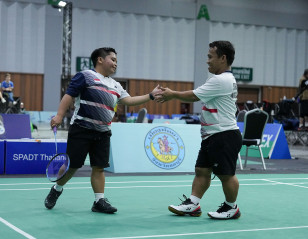
Thai Para: Indonesia, Malaysia Halt China’s Domination 14 May 2023
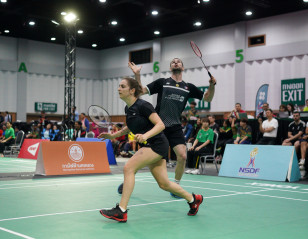
Thai Para: Overcoming the Racket 13 May 2023
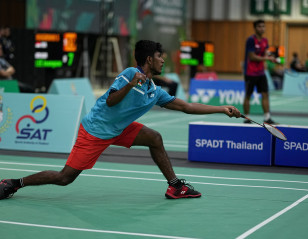
Thai Para: ‘I Got Tired of Losing’ 12 May 2023
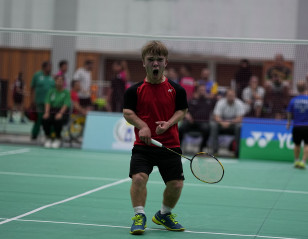
Thai Para: It’s Looking Up for Krajewski 11 May 2023
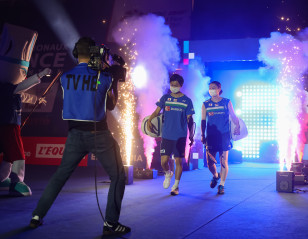
The Bell Sounds for Paris 2024 1 May 2023
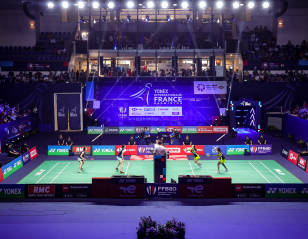
French Open 2024 to be Played at Paris 2024 Venue; Rescheduled to... 27 April 2023
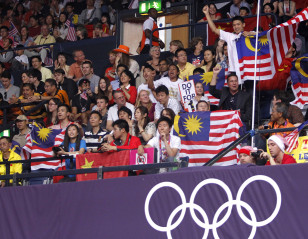
Registration Deadline for Single Tickets Approaches 15 April 2023
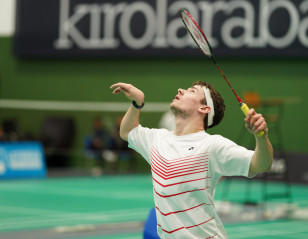
Spanish Para: Bethell Brings it Home for the Team 27 February 2023
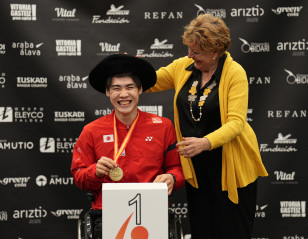
Spanish Para: Double Winner Kajiwara Keeping it Fun 27 February 2023
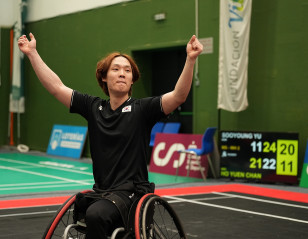
Spanish Para: Sooyoung So Good 26 February 2023
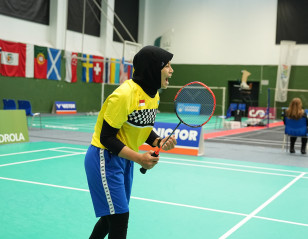
Spanish Para: My Time to Shine, Enthuses Ikhtiar 26 February 2023
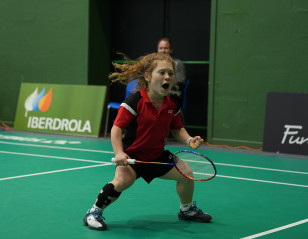
Spanish Para: ‘Anyone’s Playing Field’ 25 February 2023
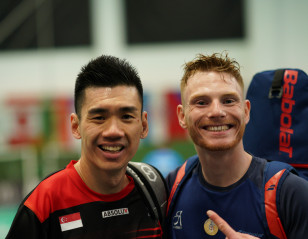
Spanish Para: It’s All Smiles for Loquette 24 February 2023
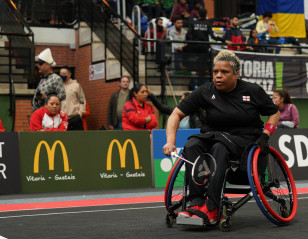
Spanish Para: Jones-Barnes Spreading the Joy of Badminton 23 February 2023
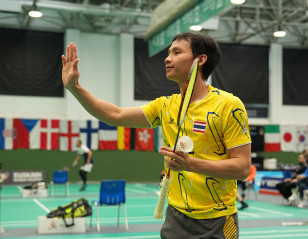
Spanish Para: Patience Key for Self Motivator Bunsun 23 February 2023
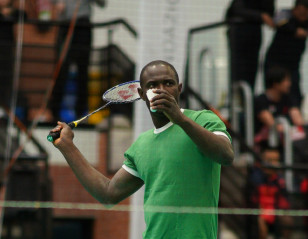
Spanish Para: ‘This One’s For You, Bello’ 22 February 2023
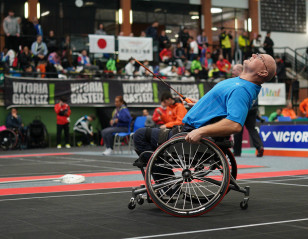
Spanish Para: New Season Brings New Faces 21 February 2023
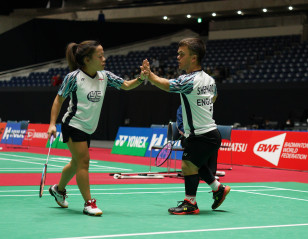
Para Shuttlers’ Road to Paris Begins in Spain 18 February 2023
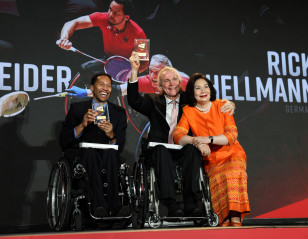
Wandschneider/Hellman Chasing Fresh Records 4 January 2023
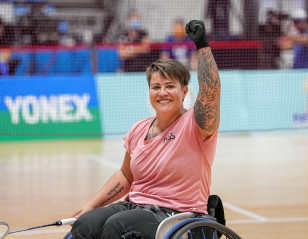
‘Extraordinary Year’ for Dual Paralympian Mathez 23 December 2022
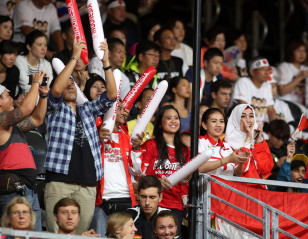
Ticketing Opens for Paris 2024 13 December 2022
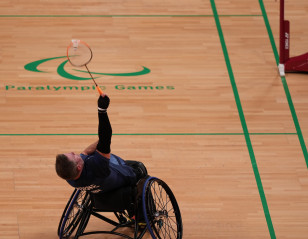
Para Badminton Events for 2023 Confirmed, Paris 2024 Journey Begins 26 November 2022
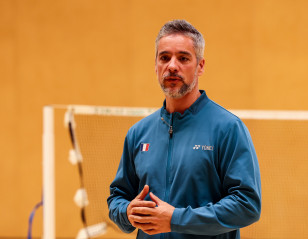
‘France in Good Position to be Top Five in World’ 17 November 2022
